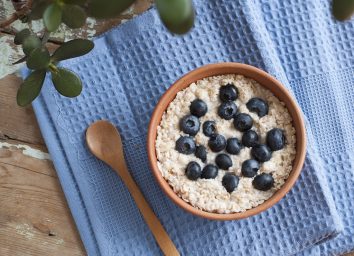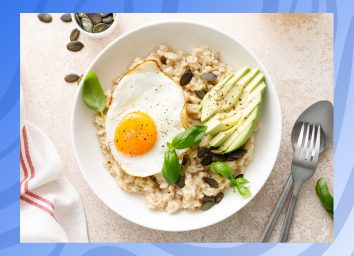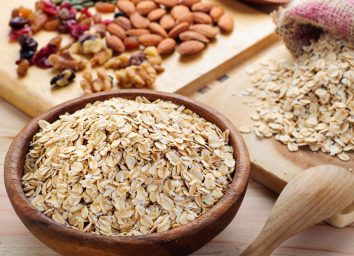What Happens to Your Heart When You Eat Oatmeal
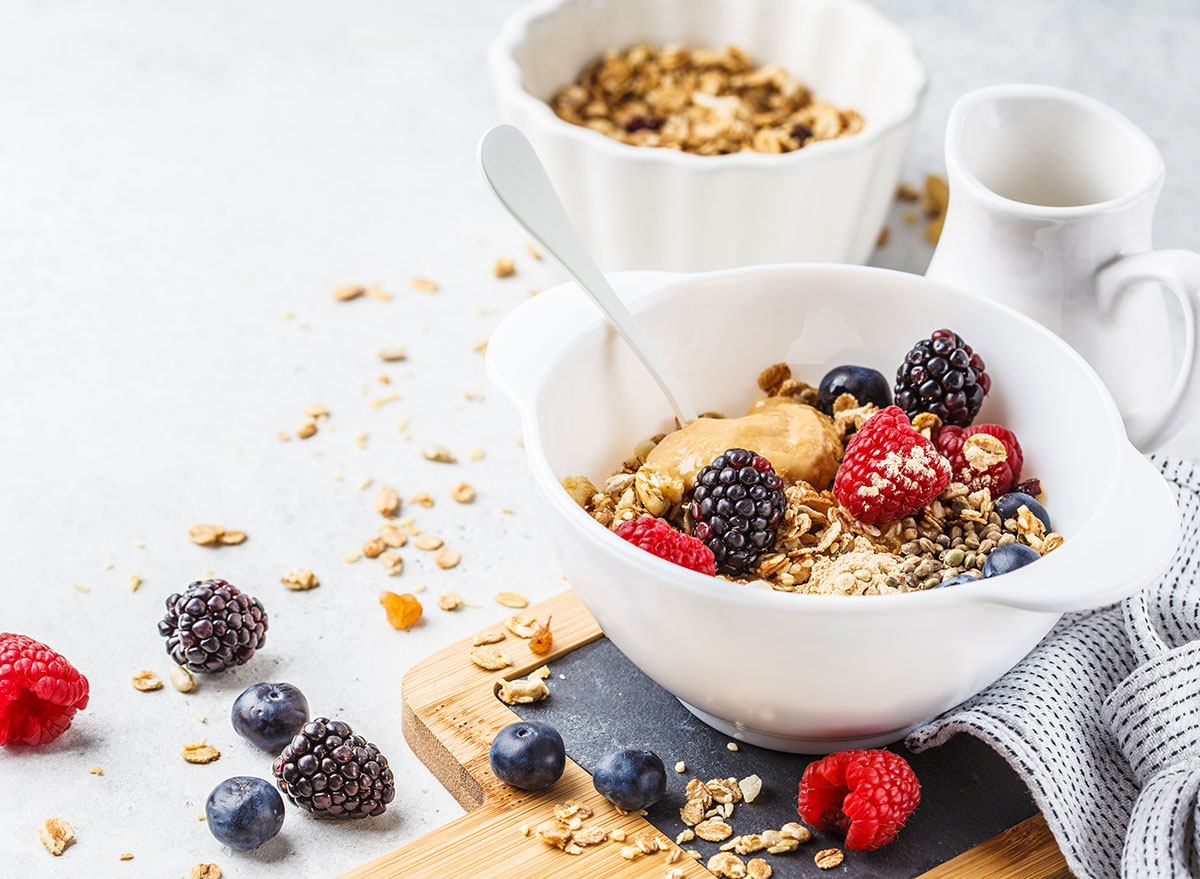
What can’t oatmeal do? This breakfast staple is full of all kinds of health benefits that are incredible for your body. From being one of the best breakfasts to live longer, to helping you lose weight, having oatmeal as a part of your regular diet will truly pay off in the long run. But did you also know that oatmeal is good for your heart health?
Many experts will call oatmeal a “heart-healthy” breakfast, and according to science, there is a lot of evidence to back up this claim. Here are the specific ways oatmeal can help your heart health—along with one way it can hurt your heart if you’re not careful. After, if you’re feeling inspired to eat oatmeal for breakfast, check out our list of these 51 Healthy Overnight Oats Recipes.
It lowers cholesterol.
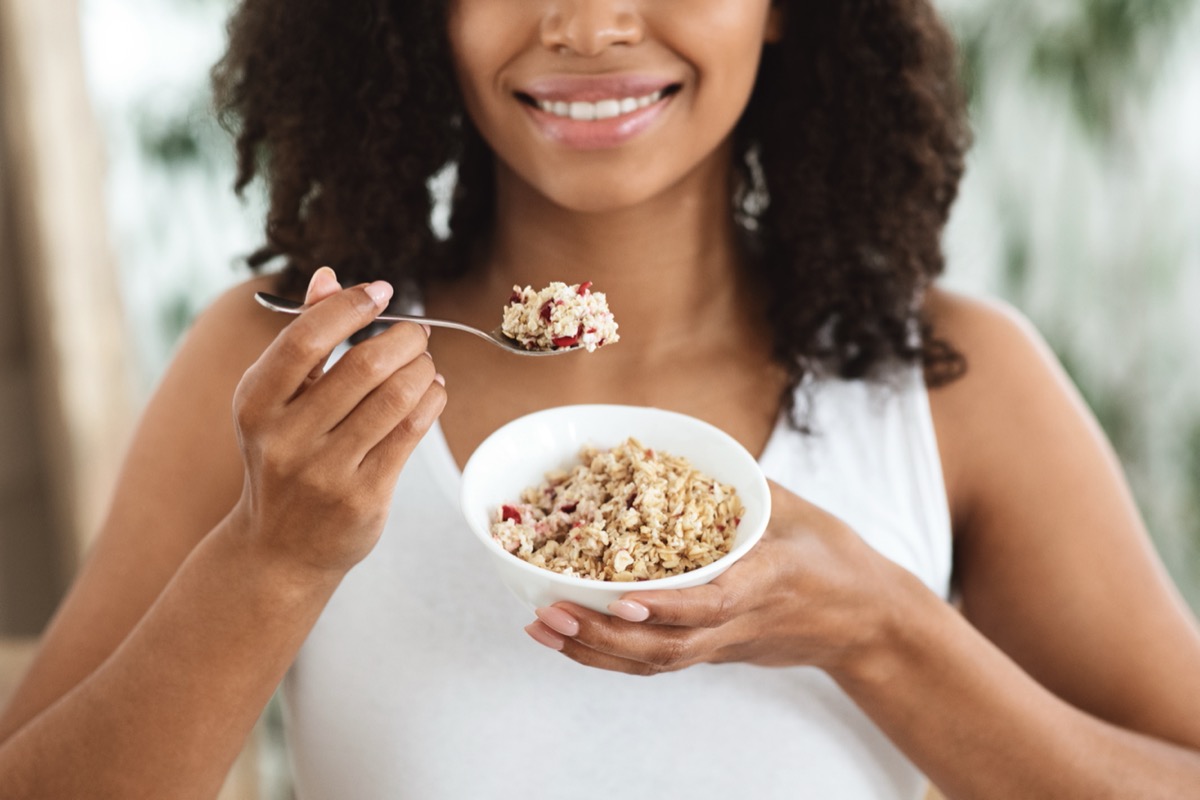
“Eating oatmeal is a great way to support a healthy heart due to its soluble fiber content,” says Amy Goodson, MS, RD, CSSD, LD, and author of The Sports Nutrition Playbook. “Soluble fiber can help lower total and ‘bad’ LDL cholesterol, which might help reduce your risk of cardiovascular disease. Adding toppings to your oatmeal like berries, sliced almonds, and/or seeds can also help increase your fiber content and the flavor.”
Here are 17 Foods That Lower Cholesterol.
It controls your blood sugar.
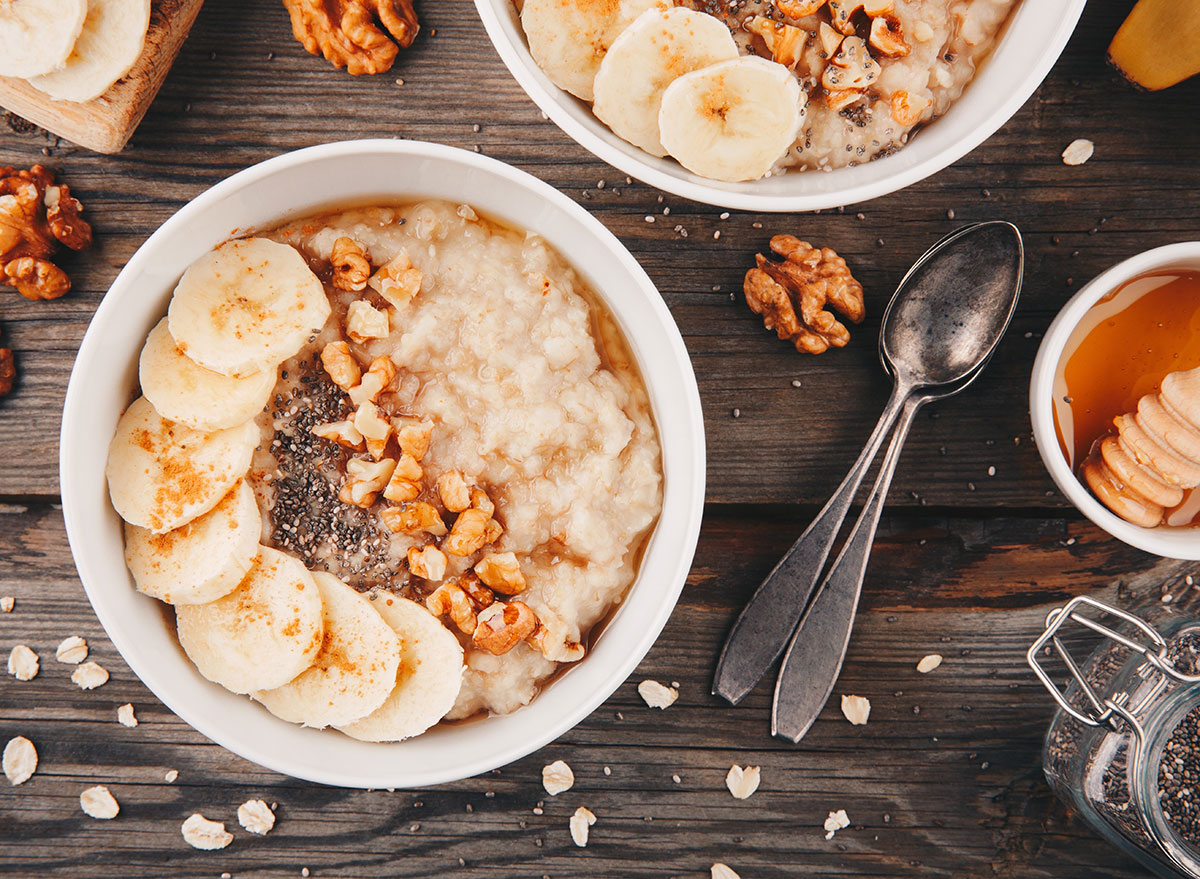
Oatmeal is a source of soluble fiber, which can help with blood sugar control overall. A steady blood sugar means a reduced risk of cardiovascular disease later in life. According to the Mayo Clinic, soluble fiber can slow the absorption of sugar, which improves your blood sugar levels and reduces your risk of also developing type 2 diabetes.
Flavored oatmeal can increase your risk of disease.
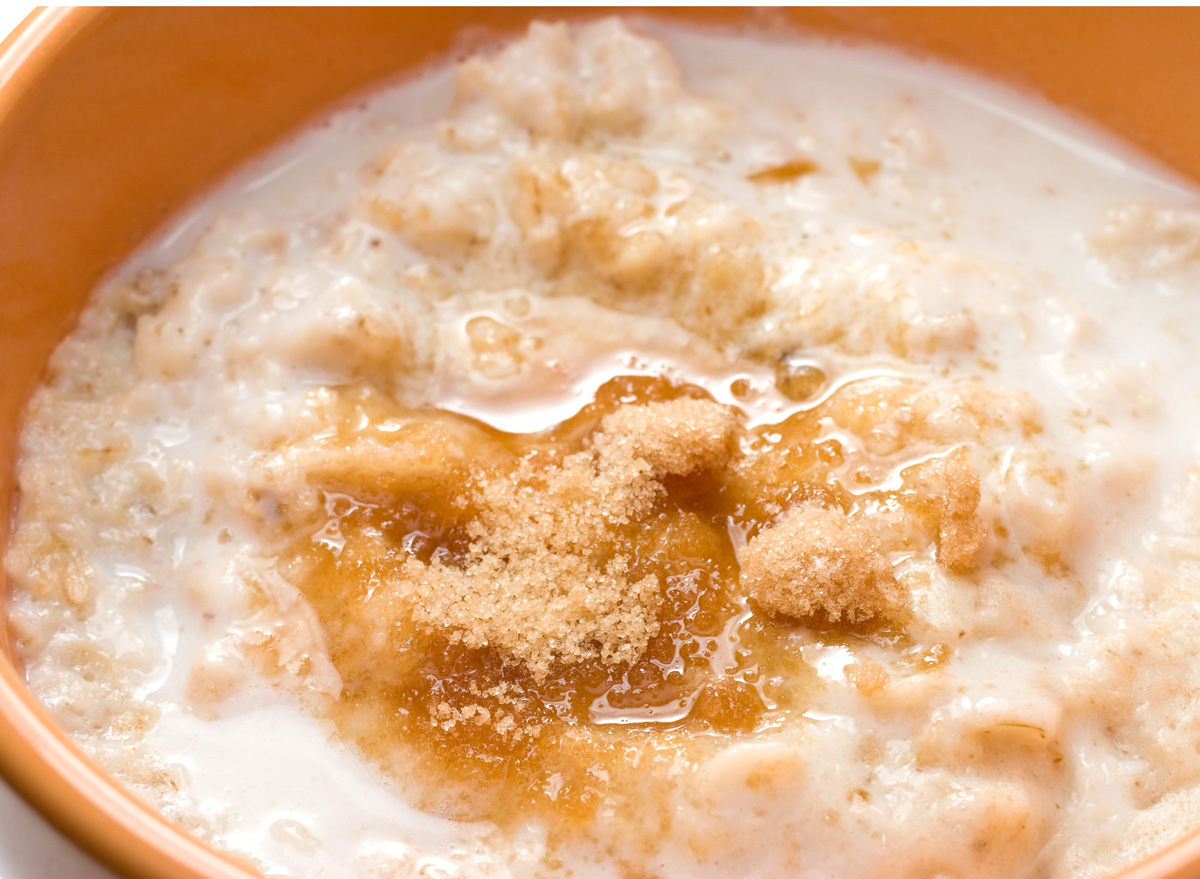
Most flavored oatmeals contain a high amount of sugar, which can reverse the effects of oatmeal trying to stabilize your blood sugar. That’s because an increased amount of added sugars in your diet can increase your risk of cardiovascular disease, according to the American Heart Association (AHA).
To keep your oatmeal working in your favor for a healthy heart, cook up a bowl of plain rolled-cut oats and mix in some healthier oatmeal toppings like nut butter, cocoa powder, pumpkin, seeds, fresh fruit, spices, cinnamon, and more.
Here are The 50 Foods That Have Been Linked to Heart Disease.
Plain oatmeal contains nutrients that reduce your risk.
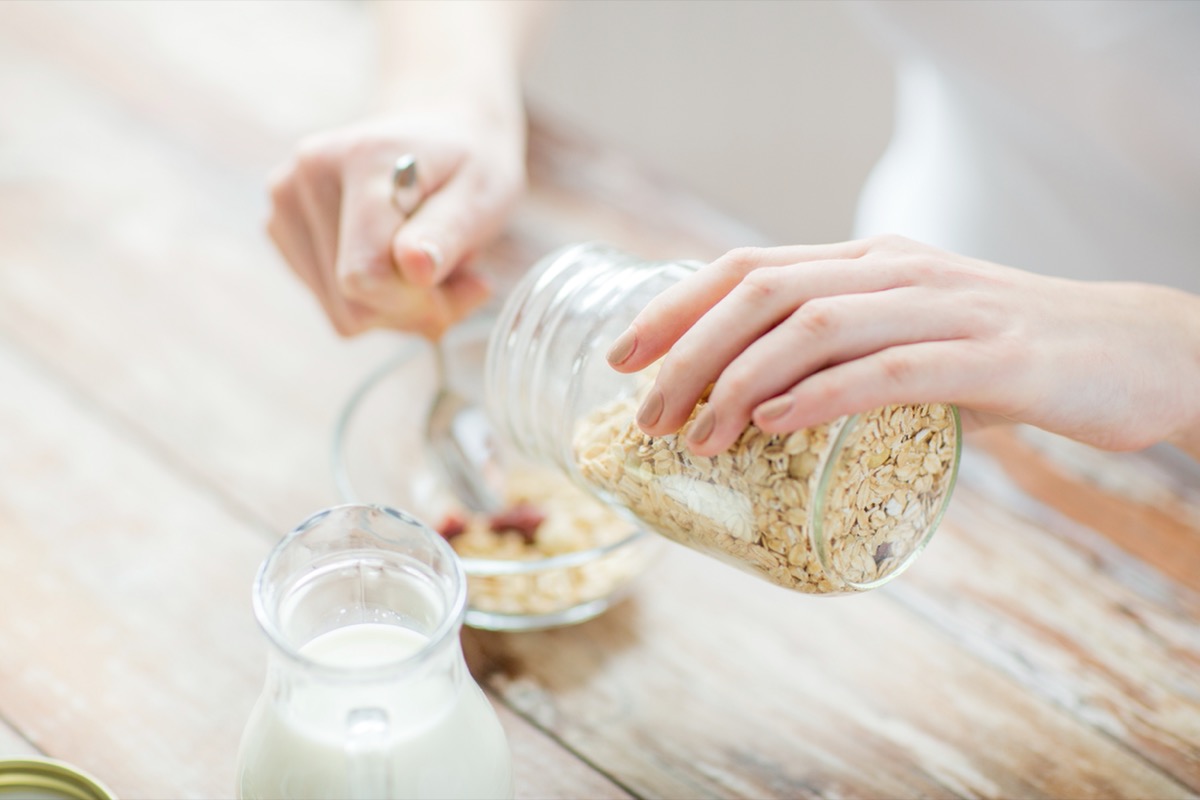
Along with its soluble fiber content, Oatmeal by itself also contains magnesium and potassium, which are two minerals that are good for your heart.
According to Harvard Health, magnesium deficiencies have been linked to cardiovascular diseases as well as high blood pressure, heart rhythm problems (such as atrial fibrillation), high cholesterol, cardiac arrest, and more.
Potassium is helpful for managing high blood pressure (hypertension) that your body may be experiencing due to a high amount of sodium in your body. According to the AHA, when you eat potassium, you’ll lose more sodium when you go to the bathroom later.
Related: Get even more healthy eating tips straight to your inbox by signing up for our newsletter!
